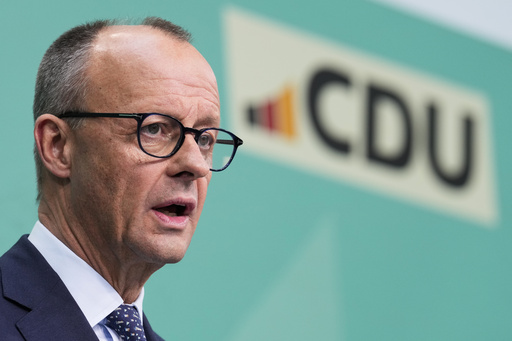FRANKFURT, Germany — The inaction of the German government concerning the sluggish economic situation has led to frustration among the nation’s businesses. With the national election scheduled for Sunday, there’s a glimmer of hope for a stable coalition between the conservative and center-left Social Democrats, potentially led by Friedrich Merz as Chancellor. However, there are concerns over whether such a coalition will promptly respond to the urgent requests from business leaders.
Leading economists and business executives in Germany have shared their perspectives on the situation. Christian Klein, the CEO of SAP SE, emphasized the necessity for decisive measures to address critical issues like excessive regulation, the lack of digital advancement, and an underperforming economy. He stated, “Germany requires a government that fosters innovation, promotes a competitive atmosphere, and eliminates unnecessary regulations that hinder growth. Immediate action is essential.”
Similarly, representatives from renowned firms like BMW AG echoed this sentiment. They expect the upcoming federal government to swiftly and substantially improve the business climate for German industries competing on a global scale. This improvement must encompass a competitive tax regime, reduction of bureaucratic obstacles, and a shift toward business-friendly policies at the European Union level.
Peter Adrian, CEO of Triwo AG and president of the German Chamber of Industry and Commerce, highlighted the significant voter turnout of 82.5%, pointing out that it reflects a widespread recognition of the critical decisions ahead. He believes a shift in direction is urgently required.
Moreover, Carsten Brzeski, the global macro chief at ING bank, stressed the necessity for the new government to concentrate on reviving the economy from its persistent stagnation. He warned that if the coalition’s primary motivation is merely to counter the far-right Alternative for Germany (AfD) party from gaining traction in the next election, it could lead to dire consequences if they fail to deliver meaningful changes.
Thorsten Groeger, the leader of IG Metall industrial union in Lower Saxony and Saxony Anhalt, underscored the urgency of the situation, noting a trend where more companies are reducing jobs and hesitating to invest domestically. He urged the allocation of billions into energy security, modern transportation infrastructure, high-speed networks, innovative technologies, robust education, affordable housing, and a welfare state that supports everyone’s needs.
Peter Leibinger, president of the Federation of German Industries, called for immediate and courageous actions from the political parties. He expressed that the seriousness of the economic decline and the lack of investments need to be addressed collaboratively and without delay.
Lastly, Holger Schmieding, Berenberg Bank’s chief economist, shared a warning regarding the political landscape. He pointed out that populist parties, including the AfD and The Left, have collectively secured over one-third of the parliamentary seats. This scenario grants them the power to obstruct any potential easing of the structural debt limitations. With pressing needs to allocate funds for defense and assistance to Ukraine, combined with the desire to reduce the tax burden for both employees and businesses, Germany may face challenges in securing sufficient fiscal resources.
